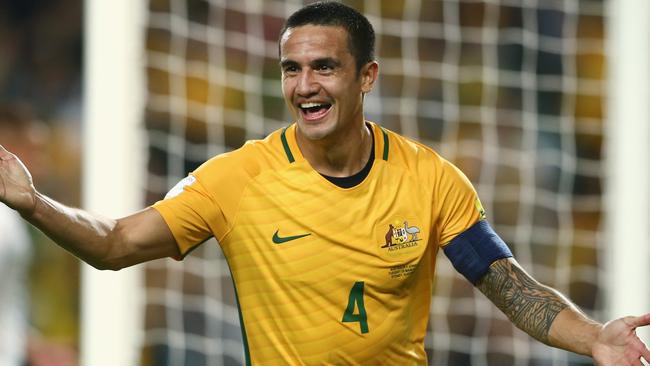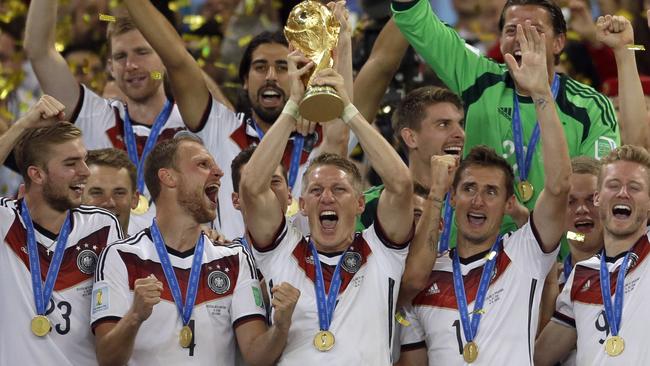FIFA made the right call to extend the World Cup to 48 teams, writes David Davutovic
EVEN with 48-teams in the field, the 2026 World Cup will be as competitive as ever. But what does it mean for Australian soccer? David Davutovic takes a look.

Football
Don't miss out on the headlines from Football. Followed categories will be added to My News.
AMID all the vicious criticism, I stand among the minority as a supporter of a 48-team FIFA World Cup.
Fans and players in Vanuatu, Indonesia, Palestine, Zambia, Rwanda, Haiti and other countries are walking taller after FIFA’s bold move raised hopes of their national teams taking part in world sport’s biggest showpiece.
This is a win for the underdogs, war-torn and second and third-world nations for whom a place in the World Cup finals was a pipedream.
Until the announcement.
FIFA’s mandate is to grow the game and that’s the point of expansion.
MARK BOSNICH: WHY 48 TEAM WORLD CUP IS THE RIGHT CALL
BIG WIN: SOCCEROOS HELPED BY 48 TEAM WORLD CUP
As long as the paupers receive a chunk of the $1.36 billion in extra riches, I’m in.
Cricket and rugby, which still have blowout results in their much smaller formats, can only dream of hosting such a mega-event.
The FIFA World Cup won’t have many walkovers (unless you count Germany’s 7-1 mauling of Brazil in 2014 as one), because the smaller nations will develop and challenge Europe and South America’s stranglehold.
The rise to 24, then 32 teams has helped football develop, underlined by the mixed bag of participants at youth World Cups.
Upsets will continue, like Netherlands missing Euro 2016 despite that competition expanding from 16 to 24.
The fringe nations have six years to improve before the 2026 campaign starts. The qualifiers will still provide intrigue and the World Cup will be as enthralling as ever.
Euro 2016 was cagey, with third placed teams advancing from groups, but that was offset by the feel-good stories.
Quarter-finalists Iceland, population 320,000, beat England and the team was given a stunning homecoming.
Wales and Hungary were colourful additions and underdog Portugal won.
Much of the blowback stems from the Europe’s elite and the FIFA cynics, which is understandable after a disgraceful period during which corruption was rife.
New FIFA president Gianni Infantino is tarred with the same brush as his predecessor, Sepp Blatter, but I’m prepared to back him.

The European Club Association (ECA), which represents Europe’s top clubs, refuted a longer tournament, hence the new format, while extending from 64 to 80 games, will stay within 32 days.
There will be 16 groups of three teams before the knockout round of 32 begins.
In Australia, if the game rests on its laurels we are in trouble.
The Socceroos had a 32-year struggle to qualify for a second World Cup, as so brilliantly depicted in the documentary ‘November 16’, but it would be foolish to think this secures our passage.
Heck, Australia is no certainty to qualify for Russia in 2018.
An extra four World Cup spots for Asia will fuel billions of dollars of investment into most of Asia’s 47 FIFA member-nations.
That’s why Australian arrogance is unfounded.
How many youth tournaments do we qualify for? What about last November’s qualifying loss in Thailand?
FIFA has a total of 211 member-nations and this is a game-changer for the biggest global sport.


